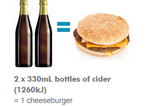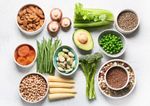The science of fullness... or why sugary drinks don't fill you up
by Gael Myers, Accredited Practising Dietitian
- October 26, 2018
- Leave a comment
The stats on sugary drink consumption in Australia are astounding – almost a third of Aussie adults drink these sugar-laden beverages each day. The numbers are even worse for kids: on an average day about half of the nation’s children will have a sugary drink.
Not only do sugary drinks rot your teeth and increase your risk of developing chronic diseases like type 2 diabetes, heart disease and some cancers, they’re also bad for your waistline. Research studies conducted over the past 50 years have consistently shown a link between sweetened beverage intake and weight gain.
So why are sugary drinks linked to weight gain?
The problem with sugary drinks is that you can down a lot of liquid in a very short space of time - up to 600mL (or about 1000 kJ) per minute. This means that the average adult could drink their entire energy needs for the day in 7-10 minutes!
The process of seeing, smelling, tasting and chewing your food tells your brain and gut that nutrients are about to come into your body. It’s called the ‘cephalic phase of eating’ and it’s what helps you to regulate how much you eat.
When you drink sugary drinks you mostly bypass the cephalic phase so your body doesn’t have time to figure out the amount of kilojoules that you are taking in. This makes it difficult for your brain to stop you from having too much.
Imagine this. You’ve just eaten a roast lunch at your parent’s house and are feeling pretty satisfied. You go over to the fridge and grab a lemonade. So far sounds pretty normal right? But what if you’d gone over to the fridge, pulled out some ingredients and made yourself a sandwich? Your parents might look at you strangely, wondering how you were going to fit in more food. The thing is, the amount of energy (or kilojoules) you would be consuming from the two scenarios would be the same.
Look at the comparisons below and ask yourself – which option would fill you up more?
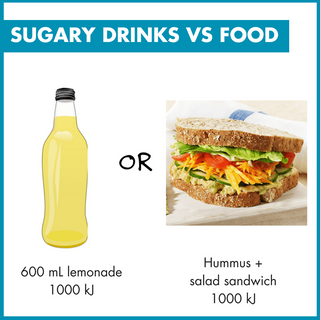 |
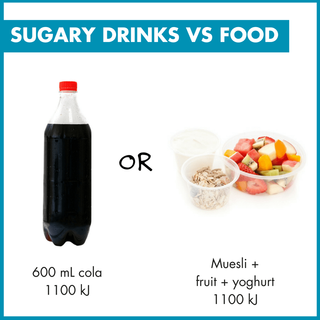 |
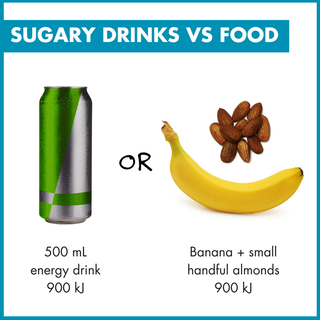 |
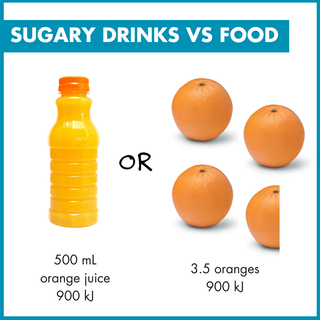 |
We tend to use drinks as an addition to, rather than a substitute for, food. But when you look at the numbers, you can see that sugary drinks can pack in as many kilojoules as food - they just don’t provide the nutrients your body needs and don’t fill you up to the same extent!
Take-home message
One of the simplest pieces of advice I can give to anyone looking to improve their health is to not drink your kilojoules. Ditching your sugary drink habit and switching to water instead will give you much more control over the amount of energy you consume – ultimately helping you to feel healthier and live lighter.

